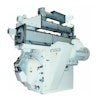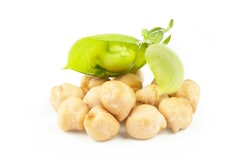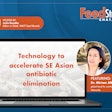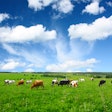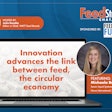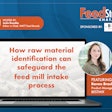
Highlighting 2022’s top Feed Mill of the Future articles and the feed industry’s most newsworthy technologies
The Feed Mill of the Future digital supplement, produced by Feed Strategy and Feed & Grain staffs, launched in late January 2022. In the year since its inception, the monthly mailer has experienced record traffic for its leading-edge coverage of the trends and innovations that will shape production in the decade ahead. Then, on January 24 at the 2023 International Production & Processing Expo (IPPE), our first Feed Mill of the Conference sold out. Here, an international audience of more than 200 feed industry professionals explored the hottest topics in feed production. Planning is already underway for the 2024 edition.
Recapping a successful first year, it’s a good time to revisit some of the brand’s “greatest hits,” so to speak. In case you missed them the first time, here’s a recap of last year’s most popular Feed Mill of the Future features:
Contributing writer Emma Penrod spoke to researchers at Pipestone Veterinary Services and Kansas State University (KSU) to examine African swine fever (ASF) mitigation strategies and what it would take to try to decontaminate feed mills infected with the highly contagious and deadly pig pathogen.
Penrod also wrote the second most popular feature, examining how upcycling human food waste can provide the animal feed industry with additional ingredient sources, which will also offset its environmental footprint of feed. She looks to the European Feed Manufacturers’ Federation (FEFAC) and its 2022 report, “Circular feed: Optimized nutrient recovery through animal nutrition,” which highlights how revisiting the value of former foodstuffs – and revisiting regulations and developing new technologies – can make it a more common practice.
Feed Strategy editor-in-chief Jackie Roembke, host of the Feed Strategy Chat video interview series, connected with Cargill’s president, Adriano Marcon, to record an episode exploring the leading-edge concepts and innovations shaping feed production, and how those new technologies will deliver advances in feed manufacturing and animal nutrition.
Beyond the many benefits of sensors in feed production, Roembke’s article delves into several new developments in sensor technology and potentially new applications that will bring feed production to the next level.
Feed & Grain’s editor, Elise Schafer, looks at how blockchain technology’s many agrifood applications may improve feed production, safety and efficiency. A critical component of the animal production supply chain, feed mills in the future may exchange data with suppliers upstream and downstream using blockchain platforms, she reports.
As energy costs have risen nationwide, Schafer’s mill design-centric feature explores how feed mill owners cite energy efficiency as a top priority when commissioning greenfield construction or renovation projects – as well as driving further investments to reduce their environmental footprint. Here, design-engineering firms share the ways they are delivering on this request.
A better understanding of what is happening in the bird’s gastrointestinal tract can lead to better flock health, more sustainable production and better return on investment. While on-farm testing is not yet available, a growing number of private research institutes, universities and analytical labs have been making strides by offering sequencing and bioinformatic services to process microbiome samples. This article, co-authored by Penrod and Feed Strategy senior reporter Ann Reus, digs into the companies and technologies promising to improve animal nutrition and performance.
As processing technologies are further optimized, insects are poised to become an affordable diet staple for species ranging from poultry to pigs, fish, dogs and even humans. Schafer determines how, as the insects-for-feed industry becomes more segmented and optimized, it will fulfill a growing need for protein alternatives.
Reus’ piece provides a look at how digital technology and data collection can take precision animal nutrition a step further by using a wide range of real-time information to adjust and improve several factors that ultimately improve productivity.
Vertical farming uses controlled indoor environments to grow large amounts of crops in stacked layers that take up a small footprint. Most often implemented to grow produce for human consumption, more companies have begun to grow fodder to feed production animals. Here, Reus looks into the potential for the technology to supply more feedstuffs in the future.
These two ranked as a close No. 11 and No. 12, honorable mention: 5 feed mill inventory management, traceability trends and ‘Lights out’ feed mills improve biosecurity, reduce errors.
Thank you to our readers for your support!
Feed Mill of the Future digital supplement
WATT’s feed brands Feed Strategy and Feed & Grain magazines join forces to launch the monthly Feed Mill of the Future digital supplement. Each edition aims to provide animal feed industry stakeholders with forward-looking content, market insights and a spotlight on the leading-edge technologies shaping the global feed industry of tomorrow.
Subscribe today! https://bit.ly/3dWzow7
